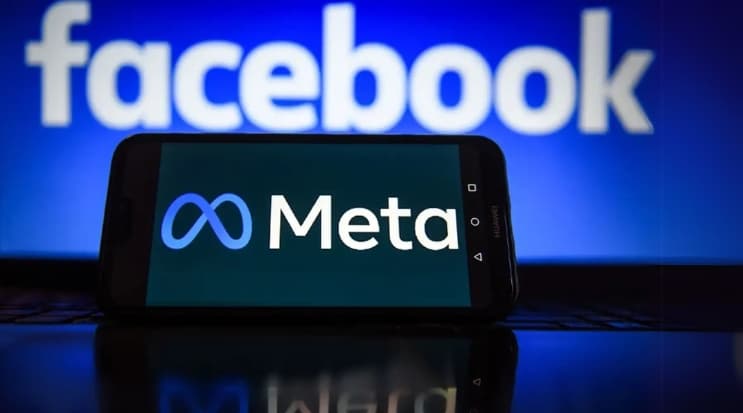
Meta Faces Historic Antitrust Trial That Could Force It to Break Off Instagram, WhatsApp
Antitrust trial puts Meta in the spotlight and could lead to a breakup of Instagram and WhatsApp
Meta Platforms Inc. is currently facing a historic antitrust trial that could have profound consequences for its business model. The case, brought forward by the Federal Trade Commission (FTC), alleges that Meta's acquisition of Instagram and WhatsApp was an unlawful consolidation of power within the social media market. The trial could force Meta to divest or break up its popular platforms, including Instagram and WhatsApp, potentially reshaping the landscape of social media and digital law in the process.
The FTC’s Case Against Meta
The FTC argues that Meta’s acquisitions of Instagram in 2012 and WhatsApp in 2014 stifled competition in the social media market. According to the agency, Meta’s strategy has been to eliminate potential competitors by acquiring them, consolidating its dominance in both photo-sharing and messaging services. The trial hinges on whether these acquisitions violated antitrust laws designed to foster competition and prevent monopolistic behavior in the tech industry.
Meta's defense focuses on the argument that the acquisitions helped improve the platforms and user experience, benefiting consumers by creating better-integrated services. The company claims that breaking up its platforms would harm the social media ecosystem, which thrives on integration between services like Instagram and WhatsApp.
What’s at Stake: Instagram, WhatsApp, and TikTok
If the FTC wins the case, Meta could be forced to sell off Instagram and WhatsApp, significantly altering the company’s operations. Instagram, now one of the most popular social media platforms, could be separated from its parent company, potentially losing its synergy with Facebook, which is still Meta’s largest platform. Similarly, WhatsApp’s separation from Facebook could complicate its messaging services and remove some of the functionality that ties Meta's platforms together.
The growing competition from apps like TikTok has made these services more important than ever for Meta. TikTok’s rise has posed a direct threat to Instagram's dominance in short-form video content, pushing Meta to continually innovate and adapt its platforms. This trial underscores the battle between these tech giants, with social media laws becoming increasingly important in regulating their growth.
The Role of Antitrust Laws in the Digital Age
The case is a pivotal moment in the evolution of antitrust law as it pertains to tech giants. The rapid growth of social media platforms and their increasing influence over public discourse, advertising, and even politics has raised concerns about monopolistic practices in the digital age. The FTC’s action is part of a broader effort to hold big tech companies accountable for using their size and power to squash competition and maintain dominance over online spaces.
For legal professionals and those working in digital law, this case could establish significant precedents for regulating how large companies grow through mergers and acquisitions. It could also impact how future acquisitions in the tech industry are reviewed, particularly those that involve major social media platforms like Instagram, WhatsApp, and TikTok.
TikTok: The New Challenger
TikTok has rapidly emerged as one of the largest social media platforms, particularly among younger users. Its short-form video content has disrupted traditional social media and created a new avenue for advertising. As Meta faces increased scrutiny over its acquisitions, TikTok continues to rise in popularity, offering a different model that could potentially avoid the pitfalls of large conglomerates like Meta.
TikTok’s rapid success has sparked regulatory challenges in various countries, with concerns about data privacy, national security, and its ties to China. In the context of this trial, TikTok represents both a competitor and a potential catalyst for change in social media laws. If Meta is forced to break up its platforms, TikTok’s role in reshaping the social media industry will likely become even more pronounced, as it continues to challenge established companies like Facebook and Instagram.
How This Case Could Change Social Media Laws
The outcome of this case could lead to a shift in how social media laws are crafted and enforced. It might set a precedent for how companies are allowed to acquire other businesses, particularly when it comes to social media platforms that may have a substantial impact on competition. If antitrust laws are enforced strictly, we could see more challenges to tech mergers and acquisitions in the future, as regulators aim to curb monopolistic practices that stifle competition and innovation.
The Role of Lawyers in Navigating Antitrust Issues
For companies involved in large mergers and acquisitions, particularly in the tech and social media sectors, understanding the intricacies of antitrust laws is crucial. Lawyers specializing in antitrust and competition law play a vital role in advising companies on how to navigate regulatory hurdles. They can help ensure that acquisitions comply with legal standards and avoid actions that may lead to litigation or forced divestitures.
In the case of Meta, its legal team will likely focus on proving that the company’s acquisitions were pro-competitive and beneficial to consumers. For competitors like TikTok, antitrust lawyers may focus on advocating for stricter regulations to prevent monopolies from forming, thereby fostering more competition within the social media market.
For any enquiries or information, contact info@thelawreporters.com or call us on +971 52 644 3004. Follow The Law Reporters on WhatsApp Channels